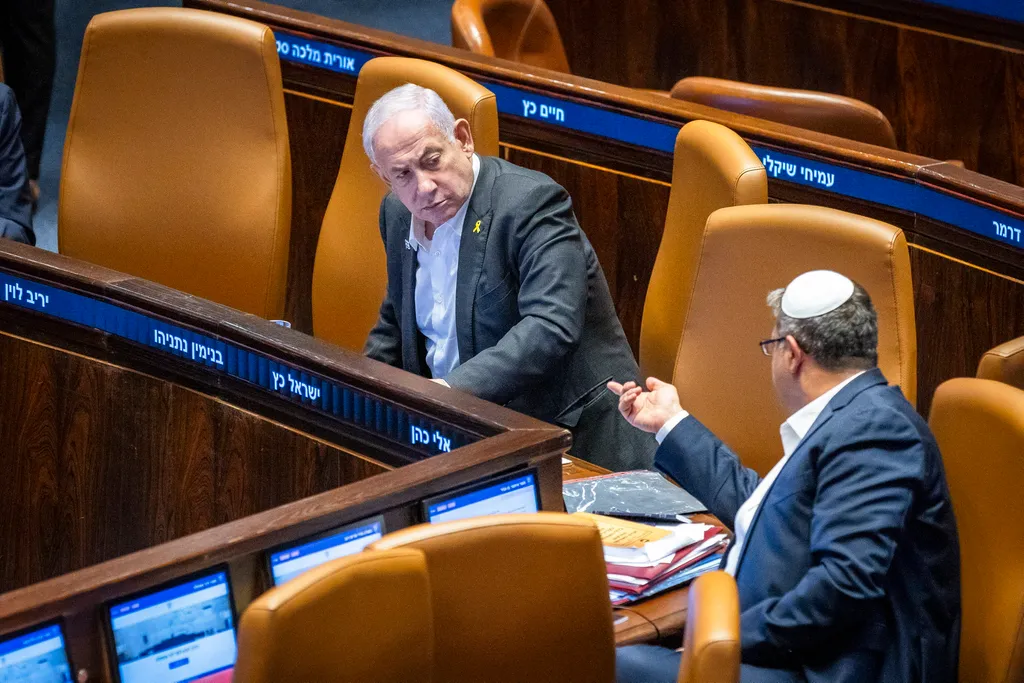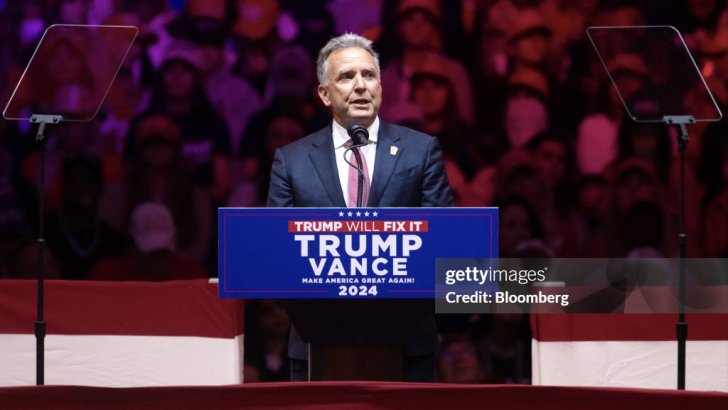Israeli sources say that the involvement of the incoming U.S. administration, led by Trump’s aggressive Middle East envoy Steve Witkoff, revived hostage talks with Hamas.
While Netanyahu’s propaganda machine claims that Trump has left him no choice, what happens inside his coalition will determine whether the prime minister approves the deal.
By Chaim Levinson, Reposted from Haaretz
Last Friday evening, Steven Witkoff, U.S. President-elect Donald Trump’s Middle East envoy, called from Qatar to tell Prime Minister Benjamin Netanyahu’s aides that he would be coming to Israel the following afternoon. The aides politely explained that was in the middle of the Sabbath but that the prime minister would gladly meet him Saturday night.
Witkoff’s blunt reaction took them by surprise. He explained to them in salty English that Shabbat was of no interest to him. His message was loud and clear. Thus in an unusual departure from official practice, the prime minister showed up at his office for an official meeting with Witkoff, who then returned to Qatar to seal the deal.
A week before Trump’s inauguration, Jerusalem already sees a change in the rules of the game that has broken the deadlock in the hostage negotiations. Unusually, the outgoing Biden administration has let Witkoff lead the process, on the grounds that any obligations the United States undertakes will be incumbent on Trump, not on Biden.
Witkoff is a Jewish real estate investor and developer who is close to Trump. He doesn’t have the background of the kind of people who usually fill diplomatic roles. “Witkoff isn’t a diplomat. He doesn’t talk like a diplomat, he has no interest in diplomatic manners and diplomatic protocols,” says a senior Israeli diplomat who spoke on condition of anonymity. “He’s a businessman who wants to reach a deal quickly and charges ahead unusually aggressively.”
In fact, Witkoff has forced Israel to accept a plan that Netanyahu had repeatedly rejected over the past half year. Hamas has not budged from its position that the hostages’ freedom must be conditioned on the release of Palestinian prisoners (the easy part) and a complete Israeli withdrawal from Gaza (the hard one). Netanyahu rejected this condition and thus was born the partial deal proposed by Egypt.
Initially, the talk was of a limited humanitarian deal. More and more conditions were slowly appended until it grew into a much bigger proposal with clear outlines – a hostage release, new regional arrangements, and full withdrawal. The Philadelphi Corridor, which Netanyahu last summer termed the bedrock of Israel’s existence, is part of the deal. At Egypt’s request, Israel will fully withdraw from it in the first phase.

It’s hard to know how Netanyahu feels about this aggressive behavior. While it provides an excuse he can give to his base, he may resent being dragged into an unwanted deal that will end the war and possibly lead to political upheaval at home.
His propaganda machine is pushing the no-choice narrative that it’s Trump. On Monday, laments began to be heard on Channel 14 that Trump isn’t what we thought. “I’m surprised all the senior officials in the U.S. administration are saying the same thing,” Yotam Zimri said on the Patriots program. “If this doesn’t happen by the time Trump comes in, Hamas will understand what hell is. I don’t understand the Israeli interest in at least not waiting for Trump.” Yinon Magal answered,” It’s because Trump is pressing to do it! That’s what’s happening.”
Zimri: “So all his people have been lying – it’s a big disappointment.”
Magal: “He talks about hell and in the meantime sends his envoy to sign a deal. It’s a deal whose impact will be very difficult. That’s the truth.” He added that the last remaining hope is that Hamas will reject a deal: “A cabinet minister told me we need to pray again that God will harden Pharaoh’s heart.”
Monday morning, another Netanyahu mouthpiece, Jacob Bardugo said, “The pressure Trump is exerting right now is not the kind that Israel expected from him. The pressure is the essence of the matter.”
Despite this, the ball remains in Netanyahu’s court, and no one can be sure what he will decide at the last minute.
Monday afternoon, he briefed Finance Minister Bezalel Smotrich and National Security Minister Itamar Ben-Gvir. Ben-Gvir will vote against any deal, no question. Winning populist votes in the next election in his calculations trumps saving lives. When Smotrich left the meeting with the prime minister, he sounded thoughtful. Those who spoke to him Monday got the impression that he thought it was a good deal.
But by noon he announced that it was a catastrophe that Israel should not agree to. Smotrich’s statement, however, didn’t address the critical issue, namely whether he regards it as a reason to quit the coalition. If he does leave, he will drag Ben-Gvir with him, and the government will fall. If he simply opposes the deal, his opposition will be meaningless – just airtime on radio shows.
This question is linked with another one, whether Netanyahu can pass the 2025 budget and better ensure the survival of the coalition, in light of the crisis over the Haredi draft law and the internecine struggle in the ultra-Orthodox camp over who can be the most extreme. Netanyahu may decide that his government is crumbling anyway, so it is better to bring it down on a deal that is popular with the non-Ben-Gvir-ist public than on the whims of the Rebbe of Gur.
Chaim Levinson is Haaretz’s Political Correspondent. Find more of his works here.
RELATED:





